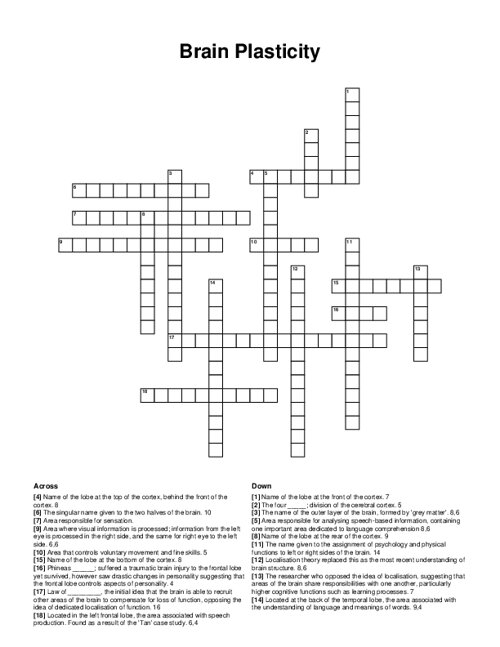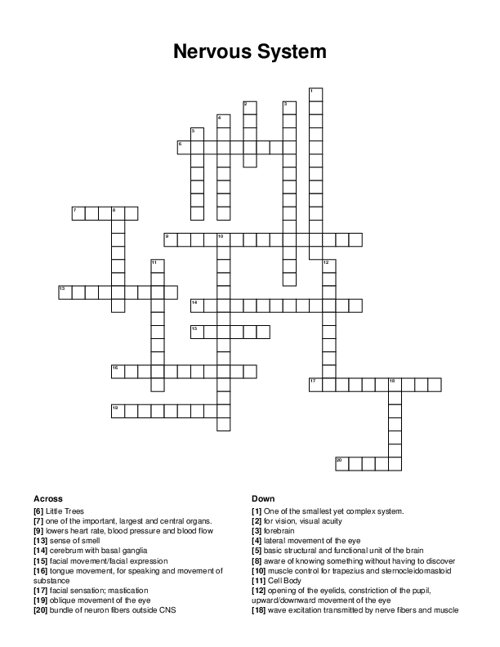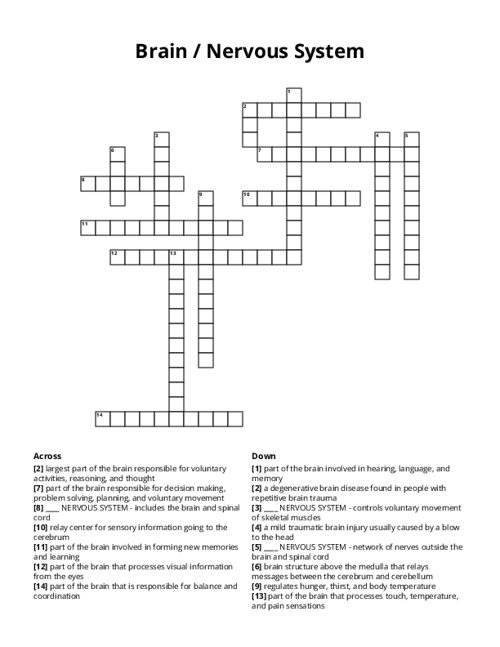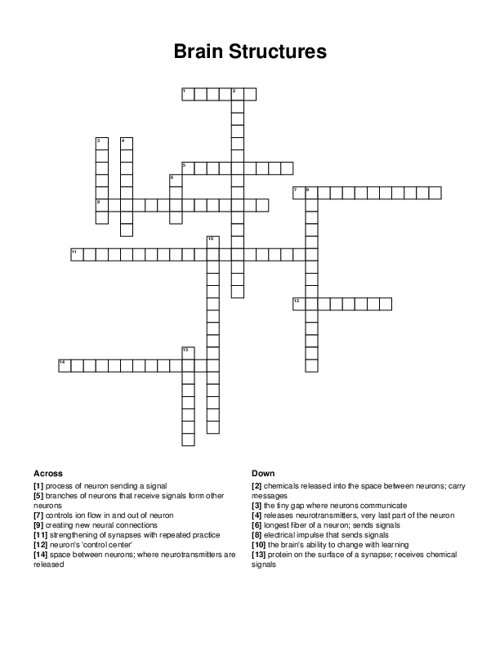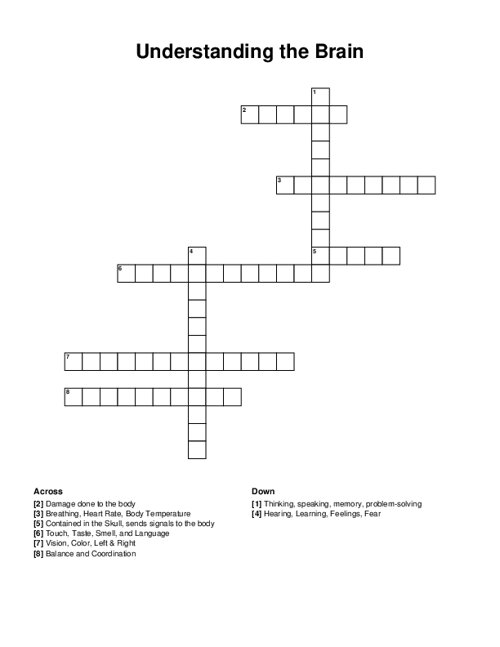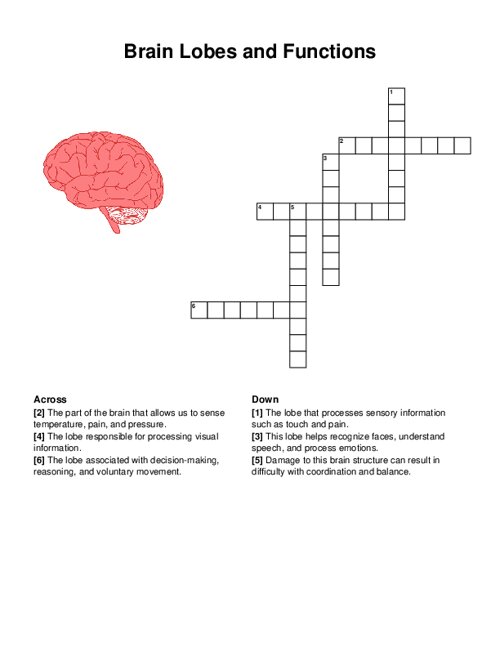Brain Plasticity Crossword Puzzle
Download and print this Brain Plasticity crossword puzzle.
Related puzzles:
Browse all Neuroscience Puzzles
QUESTIONS LIST:
- holistic theory : localisation theory replaced this as the most recent understanding of brain structure. 8,6
- hemisphere : the singular name given to the two halves of the brain. 10
- lateralisation : the name given to the assignment of psychology and physical functions to left or right sides of the brain. 14
- cerebral cortex : the name of the outer layer of the brain, formed by 'grey matter'. 8,6
- lobes : the four _ ; division of the cerebral cortex. 5
- frontal : name of the lobe at the front of the cortex. 7
- parietal : name of the lobe at the top of the cortex, behind the front of the cortex. 8
- occipital : name of the lobe at the rear of the cortex. 9
- temporal : name of the lobe at the bottom of the cortex. 8
- motor : area that controls voluntary movement and fine skills. 5
- somatosensory : area responsible for sensation.
- visual cortex : area where visual information is processed; information from the left eye is processed in the right side, and the same for right eye to the left side. 6,6
- auditory cortex : area responsible for analysing speech-based information, containing one important area dedicated to language comprehension 8,6
- brocas area : located in the left frontal lobe, the area associated with speech production. found as a result of the 'tan' case study. 6,4
- wernickes area : located at the back of the temporal lobe, the area associated with the understanding of language and meanings of words. 9,4
- gage : phineas _ ; suffered a traumatic brain injury to the frontal lobe yet survived, however saw drastic changes in personality suggesting that the frontal lobe controls aspects of personality. 4
- lashley : the researcher who opposed the idea of localisation, suggesting that areas of the brain share responsibilities with one another, particularly higher cognitive functions such as learning processes. 7
- equipotentiality : law of _ , the initial idea that the brain is able to recruit other areas of the brain to compensate for loss of function, opposing the idea of dedicated localisation of function. 16
